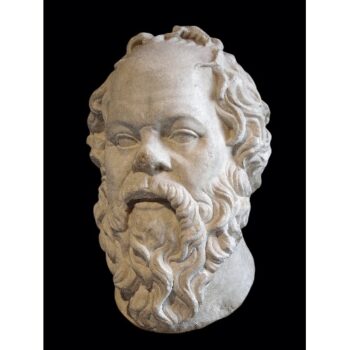“But of this principle, which holds forever, people prove ignorant, not only before they hear it, but also once they have heard it.” (Heraclitus, Fragment 1, Sentence, here WF; cp. DK 1; W 1, K1)
Sweet: “Of this eternally existing logos people lack understanding, both before and after they hear the primary thing.”
Heraclitus is known above all through his reception by Plato as the philosopher of flux. But Heraclitus is not only a philosopher of flux but also a philosopher of the logos, preempting and inspiring the Stoics. The logos informs the world and is, he says elsewhere, apprehended by the wise. However, wisdom, while possible, is not likely. Most, it appears, will not recognize “the principle.” Indeed, this opening fragment may appear to indicate that the principle cannot be understood by men at all.
In this opening line of Fragment one, Heraclitus speaks of “this principle” not, as we are now accustomed, by invoking a metaphor of vision, but by invoking one of sound. The principle is heard. Is it that Heraclitus still lives in a world more shaped by oral traditions than written ones, one in which concepts are related in spoken word rather than written? In any case the talk of “hearing” rather than “seeing” is not coincidental. Sound is more temporal than spacial. It points to a process carried out in time rather than a substance in space. The principle, the logos, appears like spoken words, which as appearing disappear, which though “holding eternal” emerge but evanesce.
For Heraclitus, the eternal principle when heard is still unrecognized. It is heard but not heard. We are left with a question of who or what speaks this principle or what sounds it makes.
